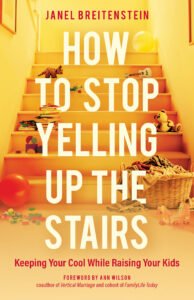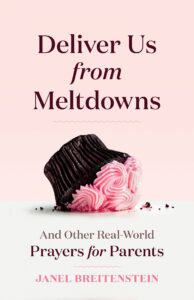It would have been tough to identify me as domineering in any form at all early in my marriage–considering I was so adept at being a doormat. (A quality my husband vigilantly called out and opposed, for the record.)
But looking back, I do think I was emotionally dominating sometimes. And though I had no idea, manipulative. (Don’t miss “Help! Is My Spouse Manipulating Me?”)
So often, the weather system of my emotions would blow through my entire household–who I would expect, nay, demand in ways subtle or overt, to accommodate me.
And not unlike a few toddlers I witnessed throwing tantrums in the last week, if I didn’t get what I hoped for, I’d turn up the volume, literally or metaphorically, or switch tactics–without actually asking for or even admitting what I needed.
I was like a grown-up Veruca Salt. I want what I want–and I want it now.
Emotionally dominating: What’s it look like?
Emotionally dominating could show up in mindsets like this:
- We need to talk about this right now, and I won’t take no for an answer.
- Do you know how much this hurts me? (Hint: This could be emotional manipulation, attempting to control the other person and their world through sympathy as first priority—yanking them into your world. It’s also self-centered rather than tending to the other person’s emotions and experience.)
- Your behavior as my child or my spouse is more important than how you feel or what you’re experiencing.
- It’s my way or the highway.
- Fine. Have it your way. I’ll punish you by doing this instead.
- This is just my personality.
- I will make you talk to me.
- You will not ignore me.
- You will do what I say.
- I will berate you, shame you, swear at you, etc. to make you feel what I want you to feel.
Or it might show up dynamics like this:
- Mom’s in a mood. Better scram!
- Blithely ignoring when people feel upset: “God commands us to be joyful!”
- Punishing others when they don’t do what we want, even through the silent treatment or backbiting.
- Unleashed, uncontrolled anger, perhaps a version of shock-and-awe parenting. (Too often has this been me. Shameless plug: I’ve been thinking about this one a lot–just turned in my manuscript for The Cool Mom: Putting Anger on Ice When Life Boils Over, due out next spring.)
- Speaking predominantly for the vast majority of the conversation, without equal concern for other voices. I like FamilyLife’s quiz, Are You a Good Listener?
- Allowing your anxiety to hover over those you love, full of idolatrous control, or of admonitions and questions about safety, rather than God’s faith-filled shalom for us.
- Yelling, screaming.
- Demanding peace and quiet.
- Shame parenting.
- Talking over others and/or interrupting.
- Drawing rigid, unhealthy relational boundaries. Remember “the wisdom from above is first pure, then peaceable, gentle, open to reason, full of mercy and good fruits…” (James 3:17).
- Unwillingness to listen.
- Unwillingness to forgive. (This is different than struggling to forgive, which I’ll address in a future post.)
- After someone tells their story, primarily shifting the attention toward your concerns and reactions.
- Casting on others our expectations that are not conscious, realistic, spoken, or agreed upon.
In what situations are you most likely to dominate your spouse? Your kids?
“I think this might be me. What can I do?”
As humans, we’re going to experience big feelings. God made us emotional in his image. Yet no, that’s not an excuse to squash our children or emotionally upchuck on our spouses.
See, the problem isn’t in the emotions themselves.
I like how Jackie Hill Perry puts this:
God’s Word and God’s nature must inform your emotions.
… [Emotions] become a danger to use and the world whenever they are detached from God’s Word.
… Emotions aren’t the problem; the flesh is. So then, in becoming more holy, doing away with emotions won’t serve us. What will is that God-breathed word.
… [P]eople will feel all kinds of ways all of the time, but they can and they must reflect God’s nature when they do.[i]
So I think about verses like these:
[Love] does not insist on its own way. (1 Corinthians 13:5)Let each of you look not only to his own interests, but also to the interests of others. (Philippians 2:4)
Let no corrupting talk come out of your mouths, but only such as is good for building up, as fits the occasion, that it may give grace to those who hear. (Ephesians 4:29, emphasis added)
But the fruit of the Spirit is love, joy, peace, patience, kindness, goodness, faithfulness, gentleness, self-control… (Galatians 5:22)
God establishes healthy boundaries around our emotions–because like we tell our kids, for example, it’s okay to be angry, but it’s not okay to hurt yourself or other people. God, too, says, “Be angry and do not sin” (Ephesians 4:26).
3+ Practical Ways to Avoid Emotionally Dominating in Your Relationships
1. Identify your feelings, so they don’t manage you from behind.
For example, about anxiety, Steve Cuss observes in Christianity Today,
I have come to see anxiety management as an essential path to being well. It is tricky work because most leaders are so focused on the mission at hand or on others that they struggle to locate the anxiety in themselves. They don’t naturally know when they are in its grip or when they are catching and spreading it.
…. You cannot be an effective servant for God when your own triggers and assumptions are speaking louder to you than the guidance of the Spirit.
…. Detangling what my anxiety calls me to do versus what God calls me to do is difficult, slow work.
2. With unrelenting honesty, acknowledge what you want.
James 4:1-2 describes our inner war:
What causes quarrels and what causes fights among you? Is it not this, that your passions are at war within you? You desire and do not have, so you murder. You covet and cannot obtain, so you fight and quarrel.
You might think, Whoa, whoa, whoa. It’s not like I pulled out a Smith & Wesson.
But for demonstration purposes, let’s replace “murder” with “take life from others” (Jesus seems to back this up in Matthew 5:21-26).
James is saying our passions—our agendas and desires, our “I must haves”—lead to life-taking behavior, including our words : “Death and life are in the power of the tongue” (Proverbs 18:21).
We can all remember a moment in life where maybe someone else was reacting out of fight/flight/freeze mode, but decades later, we remember the shameful comments branding us in their heat.
Often, our desires have swollen from legitimate desires into idols more important than God, and more important than loving our neighbor as ourselves.
3. Shepherd your emotion into the Holy Spirit’s care.
So instead, ask God to reveal, purify, and reform the desires that drive you. Then trustfully submit to his Word, his ways, his Spirit.
Lord, you know that with this infant, I have not experienced a quality REM cycle in eight months. I need rest so badly, I can taste it. Literally. Not sure I have had time to brush my teeth in three days. But please. Let me love this kid, and my poor, unsuspecting husband, like you do.
We surrender our desire to judge and punish, blame and demand, manipulate and inappropriately overpower.
- Allowing God to satiate our soul-hungers (Psalm 90:14, Jeremiah 2:13, Isaiah 55:1-3), we turn from our clawing, driving agendas, and toward loving well.
- We honor others’ boundaries, even when they don’t serve us, don’t make sense to us, or seem unreasonable.
- We restrain our tongues in favor of listening.
- We return a blessing for an insult (1 Peter 3:9), replaying the gospel by not treating others as their sins deserve (Psalm 103:10-14).
- We’re messengers of grace and peace rather than fear, perfection, and performance.
- Rather than demanding our “right” to express feelings how and when we want to, allow God’s Word and care for others to dictate how we respond.
Yes, we still manage our kids through healthy control. But our parenting is fueled by our souls’ satisfaction in God, rather than idols like fear, appearances, shame, or unhealthy control. (Check out “Am I a controlling parent?”)
And yes, sometimes our emotions will still sweep through our homes. Living in community means we empathetically feel what affects others. We can’t emotionally isolate in fears of failing to be life-giving, taking up space, or receiving care. (Biblically, Jesus and Paul both accepted care from others.) I’m ashamed to admit this can be my personal default.
But we do regard others rather than demanding they bow to our feelings.
Psychologist and author Dr. Curt Thompson outlines Jesus’s three-step process in Jesus’ own fight/flight/freeze moments.
- Jesus acknowledges how he feels: “My soul is very sorrowful, even to death” (Matthew 26:38). This is actually what he says to his friends! But we assume he’d be just as honest with God, as David was.
- Jesus asks God for what He longs for. “My Father, if it be possible, let this cup pass from me” (v. 39).
- Jesus submits to God’s will, “nevertheless, not as I will, but as you will” (v. 39).
So yes–feel all the feelings. Ask for the care you need. But love God and love others more than your compulsion to express them however the wind blows you.
Like this post? You might like
Much Afraid: How Fear Turns Good Parents into Slaves [INFOGRAPHIC]
Anger Issues? Ideas to Keep a Lid On
When Your Kid Embarrasses You: 4 Ideas
[i] Jackie Hill Perry, Upon Waking, B & H Publishing Group, 2023, pp. 7-8.









